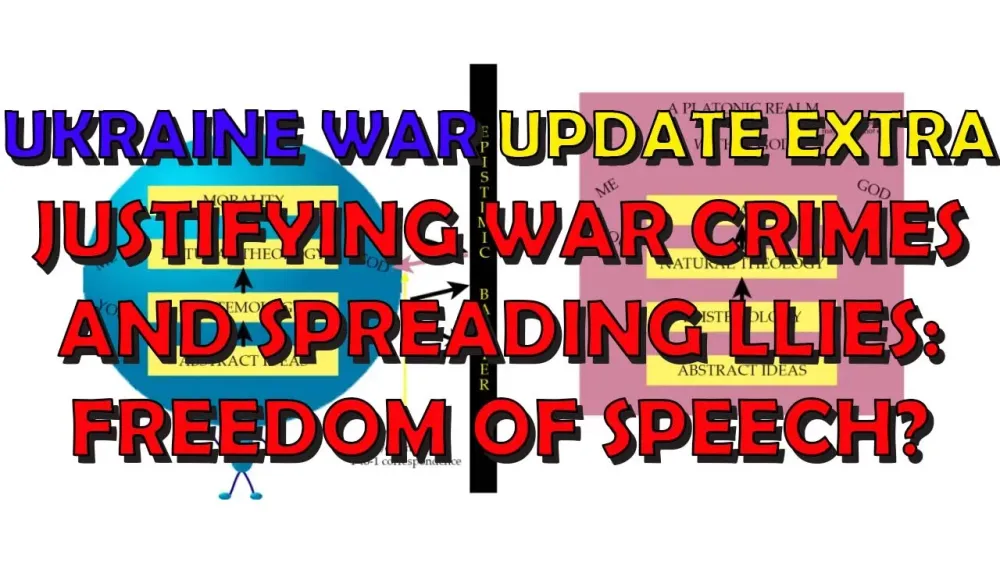Justifying War Crimes and Lying: Freedom of Speech?
Table of Contents 📖
| Topic ID | Topic Title | Timestamp |
|---|
"Back in the 30s, the Germans ended freedom of speech to further their propaganda. Same thing you're trying to do on your page."
Hello Team!
Jonathan introduces himself as a philosopher who started the Tippling Philosophers group to discuss philosophy over pints at the pub. He explains that he approaches geopolitics on this channel with a philosophical and psychological perspective. Humans tend to believe things based more on psychology and emotion rather than rational arguments. Presenting someone with arguments against their position can cause them to become even more entrenched in their original views (the backfire effect).
Return to top⤴️
Recent Russian Attacks on Civilians
Jonathan expresses his anger and disgust at the recent Russian attacks on a hospital in Bereslab, Kherson, a wake attended by civilians, and apartment buildings in Kharkiv. He shares some emotional comments from viewers struggling to process these atrocities. While it's easy to hate Russia as a whole, Jonathan acknowledges the importance of remembering the humanity of those providing assistance to Ukraine and the strength of the Ukrainian people in the face of such evil.
Return to top⤴️
Conceptual Nominalism and Abstract Ideas
Jonathan explains his philosophical view of conceptual nominalism - that abstract ideas like mathematics, morality, rights, etc. are constructed by our minds and don't exist as external truths. Even if objective moral truths existed, we would have no way to access them directly (the epistemic barrier). In reality, ideas considered moral or lawful differ across times and cultures. Rights often conflict with each other and we must construct a hierarchy to determine which ones take precedence in a given situation.
Return to top⤴️
Freedom of Speech and Spreading Disinformation
Jonathan argues that freedom of speech is not an inalienable right, but something we construct. While he supports free speech in general, he believes there are situations where it is justified to limit it (e.g. yelling "fire" in a crowded theater). On his channel, Jonathan is considering banning pro-Kremlin voices who spread disinformation and justify Russian war crimes. He suspects many are paid Kremlin agents engaging in information warfare. Jonathan shares a debate with a commenter "Solid for Life" who defends Russian attacks on civilian targets. He finds these arguments morally reprehensible, especially coming from someone claiming to watch his channel regularly. In a poll, 75% of his viewers support banning such voices.
Return to top⤴️
Wrap up
In conclusion, Jonathan hasn't made a final decision on banning certain voices. He acknowledges the importance of engaging with opposing views and the risk of creating an echo chamber. However, he leans towards removing "bad faith actors" who show no genuine interest in discussion or changing their minds in light of evidence. He believes that justifying evil acts is in some ways as terrible as committing them. Jonathan ends by expressing his sympathies for the Ukrainians who have lost loved ones to this terrible war. He thanks viewers for listening and engaging with these challenging philosophical questions that have no easy answers.
Return to top⤴️

